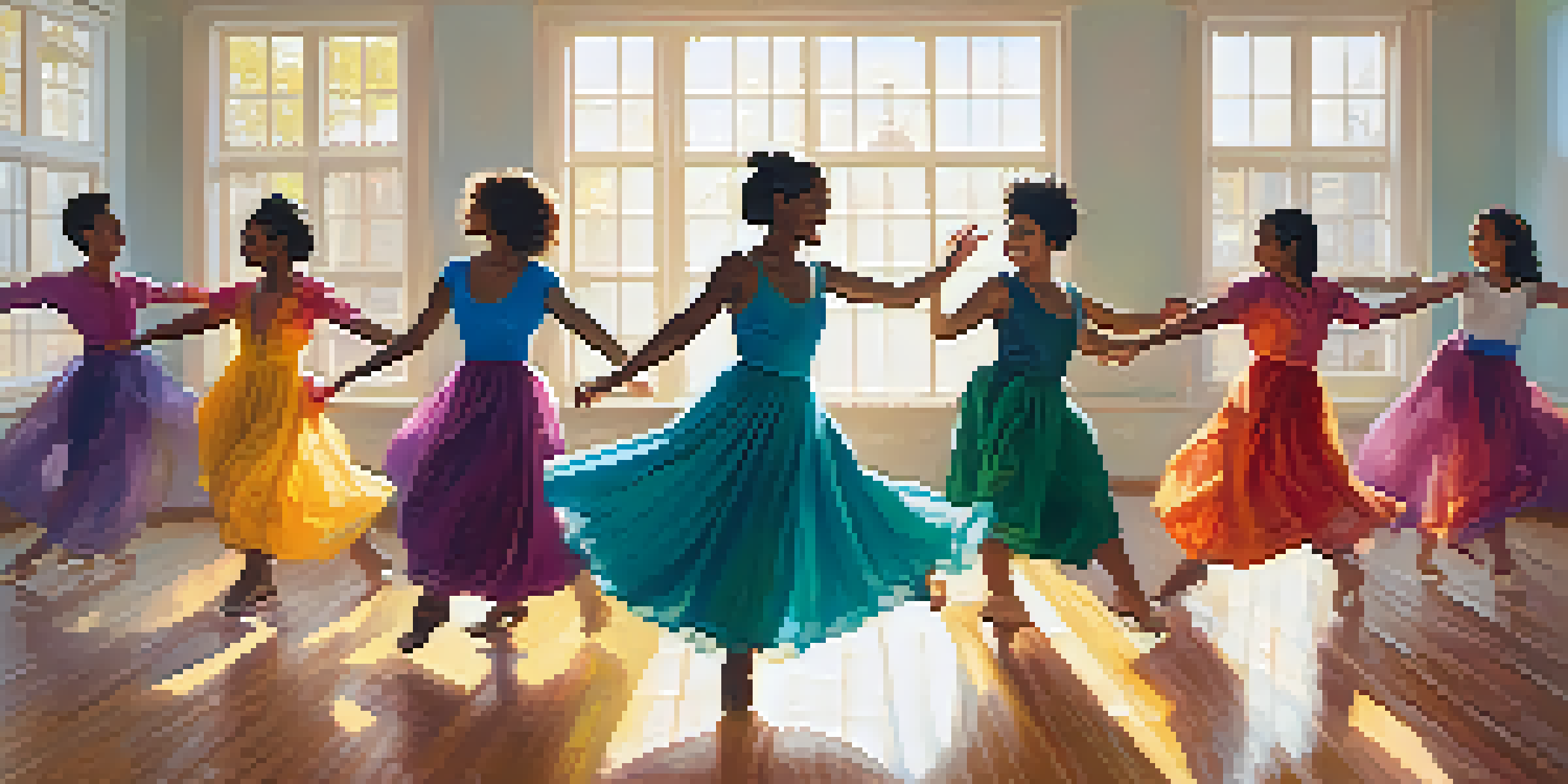The Role of Group Dance in Building Social Emotional Skills

Understanding Social Emotional Skills: An Overview
Social emotional skills encompass the ability to understand and manage emotions, set positive goals, show empathy, and maintain relationships. These skills are crucial for personal development and social interactions, helping individuals navigate life's challenges. They lay the foundation for effective communication and conflict resolution, which are vital in both personal and professional settings.
The Connection Between Dance and Emotional Expression
Dance serves as a powerful medium for emotional expression, allowing individuals to convey feelings that might be hard to articulate with words. When participants engage in group dance, they tap into a shared emotional experience, fostering a sense of connection with others. This shared expression helps build trust and understanding, which are critical components of social emotional skills.
Dance Boosts Emotional Skills
Group dance enhances social emotional skills by promoting emotional expression and empathy among participants.
Group Dance: A Platform for Teamwork and Collaboration
Participating in group dance requires collaboration and teamwork, as dancers must synchronize their movements and support each other. This environment encourages individuals to listen actively and respond to others, enhancing their interpersonal skills. As dancers work together towards a common goal, they learn the value of cooperation and the importance of valuing each team member's contribution.
Building Confidence Through Group Dance Participation
Engaging in group dance can significantly boost self-esteem and confidence, especially when participants receive positive reinforcement from peers. As individuals practice and improve their skills in a supportive environment, they become more comfortable expressing themselves. This newfound confidence extends beyond the dance floor, influencing other areas of life and enhancing social interactions.
Teamwork Through Dance
Engaging in group dance fosters teamwork and collaboration, teaching individuals the value of cooperation and communication.
Empathy Development in Group Dance Settings
Group dance fosters empathy as participants learn to understand and appreciate each other's emotions and perspectives. Through shared experiences, dancers become more attuned to non-verbal cues, such as body language and facial expressions. This heightened awareness helps individuals develop stronger relationships, as they learn to respond compassionately to others’ feelings.
Conflict Resolution Skills Gained from Group Dance
Dancing in a group can sometimes lead to disagreements, such as differing opinions on choreography or performance styles. However, these situations provide valuable opportunities to practice conflict resolution skills. Participants learn to negotiate, compromise, and find solutions that satisfy everyone, leading to improved communication abilities that are essential in everyday life.
Conflict Resolution in Dance
Group dance provides opportunities to practice conflict resolution, helping participants learn negotiation and compromise.
Cultural Awareness and Diversity Through Dance
Group dance often includes diverse styles and traditions, promoting cultural awareness and appreciation. When participants explore different dance forms, they gain insight into various cultures and perspectives. This exposure encourages inclusivity and understanding, which are fundamental aspects of social emotional skills, enabling individuals to interact more effectively in a multicultural society.
The Lasting Impact of Group Dance on Personal Growth
The skills developed through group dance extend far beyond the dance floor, contributing to personal growth and social success. Participants carry the lessons of teamwork, empathy, and emotional intelligence into everyday interactions, enhancing their overall quality of life. By incorporating group dance into their routines, individuals can continuously develop these essential social emotional skills throughout their lives.